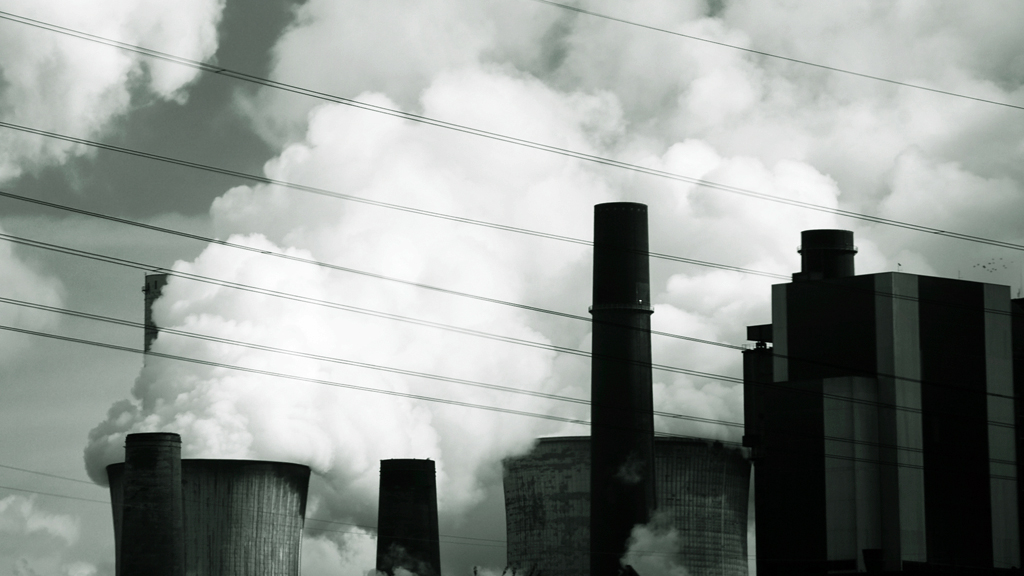Fifth IPCC climate report – can the world respond?
The conclusions of today’s Intergovernmental Panel on Climate Change report is stark. Environmental lawyer Alistair McGlone asks if there is the political will to respond with concrete action.

The IPCC’s brief was to explain the current state of knowledge in climate change and its potential environmental and socio-economic impacts. It has been doing that since 1998.
Volunteer scientists from all over the world prepare panel reports; they review the available range of scientific, technical and socio-economic information on climate change. Some 195 countries are IPPC members, so nearly all the countries in the world participated in the adoption of Friday’s fifth assessment report (FAR).
For over 20 years the international community has struggled to mitigate global warming by reducing emissions of greenhouse gas, and to adapt to climate change. The IPPC has provided the scientific basis for that work. So the 1992 Climate Change Convention acknowledged the panel’s role of giving objective scientific and technical advice, and the 1997 Kyoto protocol based greenhouse gas emission limits on IPCC work.
The protocol also recognised IPCC methodology for estimating emissions and for working out how carbon “sinks”, such as forests, can remove global warming gases from the atmosphere.
Stark messages
The FAR gives stark messages. The IPCC says that since its last 2007 report there is even greater certainty that climate change is happening and caused by human emissions of greenhouse gases; it warns that concentrations of greenhouse gases are greater than any time in the last 800,000 years; and it predicts, as a result, more extreme rain in the north and more drought in the tropics. The worst-case scenario features widespread floods, severe droughts, famine and migration.
Many will hope that further and stronger international efforts to mitigate climate change will follow, but there are a number of problems to solve before this can happen.
The worst-case scenario of today’s report features widespread floods, severe droughts, famine and migration.
First, international efforts to refine climate change law have been in the doldrums since the failure of a 2009 summit in Copenhagen. So we are left with treaties that environmentalists and many governments believe are not good enough. The Kyoto protocol, for example, does not provide adequate controls over the world’s two greatest emitters of greenhouse gases because the US hasn’t ratified and China, although a party to the protocol, is not bound to make specific, quantified reductions.
Second, climate change mitigation costs money, and so it is difficult to persuade world leaders to focus on global warming when they want to give priority to fixing their economies.
Third, many people believe the climate change sceptics. Some accept that global warming is being caused by human activity, but doubt the cost of tackling climate change is worth it. Others simply disagree with the panel’s scientific analyses and question the legitimacy and value of international work to prevent dangerous anthropogenic (man-made) interference with the climate system.
Signs of change
Despite all this, there are some signs that international community may be ready to return to take action.
Those who want more action (including the UK and the EU) have found it difficult to make headway without support from the US, which historically has been a reluctant participant in negotiations.
Those who want more action have found it difficult to make headway without support from the US.
But things are changing. Domestically President Obama’s climate action plan is underway, and this month the US Environmental Protection Agency proposed to cut greenhouse gases from new power plants in order to combat climate change, despite protests that this would make new plants uneconomic.
In June the US and China agreed to work together and with other countries to phase down production and consumption of hydrofluorocarbons, which are gases with a dangerous global warming potential.
And Ban Ki-moon, the UN secretary general, is now planning a world summit to ensure the highest possible engagement by senior politicians prior to the next round of negotiations to deliver a legally binding treaty requiring universal greenhouse gas reductions for the period beyond 2020.
Affordable change?
Time is short. The negotiations start in 2014, and should produce an agreement by 2015. So those who are convinced by the panel’s report will want to see quick progress at international level.
If and when international agreement is reached, it will fall to individual countries to take their own actions to reduce emissions. When this happens, sceptics fear disproportionate and wasteful cost – for example, journalist Christopher Booker wonders whether the “obsession” with climate change might turn out to be “the most costly scientific blunder in history”.
Those who are convinced by the panel’s report will want to see quick progress at international level.
On the other side of the debate, Professor Nilay Shah, of Imperial College, the lead author of a recent report by the Grantham Institute for Climate Change, of which he is the lead author, argues that the transition to a low-carbon world where global emissions in 2050 are half the level they were in 2008 is affordable, and chides politicians who focus on the short-term cost of cutting emissions instead of the long-term benefits such policies would bring.
In any event, many states will be reluctant to commit to de-carbonising their economies unless others cooperate internationally to match their efforts. So the round of negotiations, starting in earnest next year, will be crucial.
Alistair McGlone is a lawyer specialising in international environmental issues
-
Latest news
-
Laughing Boy: New play tells the tragic tale of Connor Sparrowhawk5m

-
Sewage warning system allows some of worst test results to be left off rating system, analysis shows3m

-
Post Office inquiry: Former CEO didn’t like word “bugs” to refer to faulty IT system4m

-
Israeli soldier speaks out on war in Gaza12m

-
PM’s defence spending boost should be ‘celebrated’, says former Armed Forces Minister4m

-





